In Bangladesh, monsoon floods happen every year. And each time they bring hardship for many people. This July, heavy rainfall caused flash floods and river erosion across 19 districts. The calamity continued for two months and had a devastating effect on 3.7 million people. In varying ways they suffered from lack of shelter, food, clean water, sanitation, education and other daily necessities. As part of the CDAC Network’s contribution to awareness around emergency preparedness and communication with communities affected, journalist Onchita Shadman visited the northern district of Jamalpur to hear what people thought about the response, and what they would like to see done in the future. Jamalpur was one of the areas worst affected. It suffered the longest period of disruption, as roads and railway tracks were submerged in water. She writes…
24-year-old Aliya lives in Madarganj sub-district of Jamalpur with her husband and two boys. When flood water entered her house, Aliya tied her bedding and belongings into a bundle and went to stay with her aunt-in-law. The family lived there for 10 days waiting for the water to drain away. When they came back to their house, it was barely standing. The bamboo walls had collapsed.
For Aliya, aid came in the midst of the flood. “We received 10 kg rice, Tk 1500 as cash, soap, comb, pad (sanitary napkin), matchsticks and candles from the Member (elected representative in local council). The matchsticks and candles were handy as we don’t have electricity in our area. However, the pad given to the women caused a lot of mirth. Some thought it is bread, and unfolded it hopefully. Others thought it is a folded pillow. The instruction on its usage was given outside and the glare from the sun made my eyes burn. I couldn’t concentrate. They gave us a book (instruction manual), but I can’t read. Pads are expensive, we don’t use these normally.”
Aliya’s husband works as a porter in the local bazaar, loading and unloading vegetables from trucks. Aliya says, “During floods, my husband is out of work because trucks can’t travel on damaged roads. The rice given by the government lasted for a week. We used the cash to buy more food and borrowed Tk 4000 to repair our broken house.”
Aliya learnt by word of mouth from neighbours and relatives that water from flooded tube wells is contaminated. “We tied clothes to the mouth of the tube well to filter the water which was then boiled for drinking. To move about, we had to wade through waist-deep water and lift up our dresses. This is embarrassing when men are around. Filthy water caused infection in my ears. I bought allergy medicine to treat it”.
Aliya is accustomed to annual flooding. She considers cash grant as most useful in emergencies because it gives her the option to meet her urgent needs. She also thinks that an improved drainage system in the area would help flush out flood water quickly and reduce her hardship.
Onchita Shadman’s visit was undertaken as part of the CDAC Network’s project in Bangladesh which is funded by UK Aid under the Disasters and Emergencies Preparedness Programme. This works in 14 countries to develop effective response where it is needed most, and aims at a major improvement in the way countries cope with populations caught up in a disaster or conflict. This ground breaking programme, one of the largest investments of its kind, is managed collaboratively by the CDAC and Start Networks. Between them they leverage the expertise of more than 50 member organisations.






















